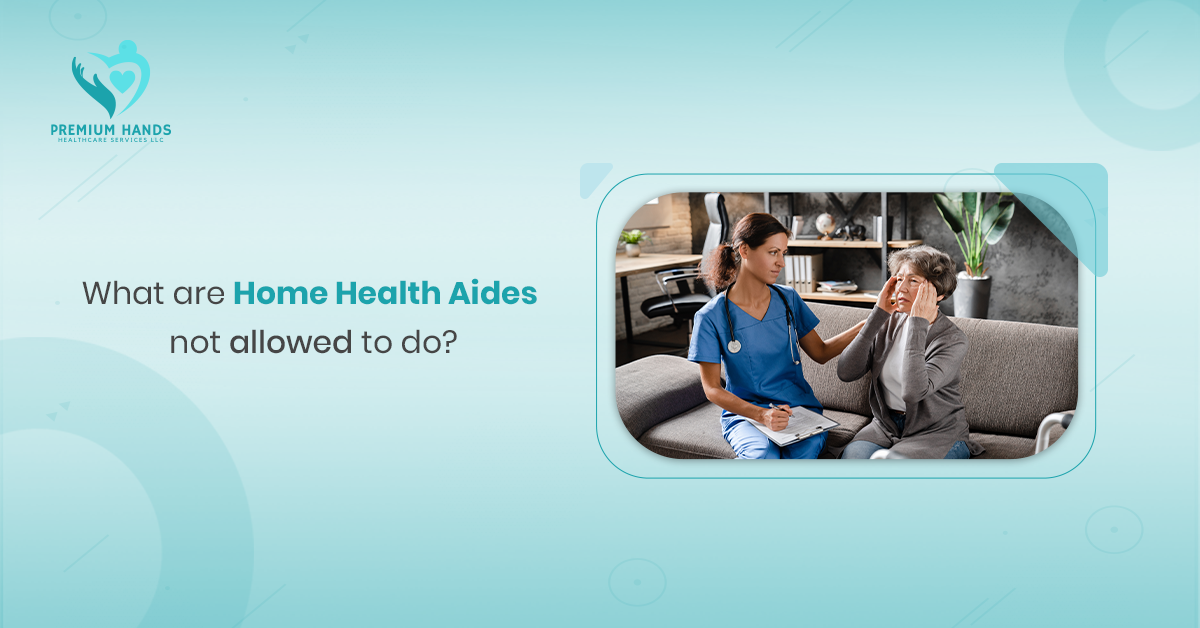When a loved one needs care, home health aides (HHAs) are your guiding light. They handle daily tasks and provide comforting companionship. Their presence is a soothing balm, bringing comfort to both heart and home. However, it’s vital to clarify their boundaries. Many wonder: “What are home health aides not allowed to do?” Let’s explore this together. We’ll clarify expectations for families and patients.
At Premium Hands Healthcare Services LLC, our skilled home health aides provide caring support and show respect. We can help your loved ones achieve safety and independence in their lives. Contact us today.
What Is a Home Health Aide?
Before we explore restrictions, let’s specify the purpose of a home health caregiver. Imagine a trained professional—a helpful presence at home. These helpful people assist those with disabilities, chronic illnesses, or aging issues. They provide non-medical care in their clients’ homes. They aim to create a safe and comforting space. This helps clients live independently.
What do home health aides do? Common tasks include:
- Assisting with washing, getting dressed, or personal care.
- Preparing meals or feeding.
- Light housekeeping (like laundry or tidying up).
- Reminding clients to take medication.
- Providing companionship.
But there are strict rules about their duties. Let’s explore what home health aides are not allowed to do.
1. Home Health Aides Cannot Give Medication
A frequent question arises: “Can a home health aide give medication?” The answer is no. Home health aides are not allowed to give pills, injections, or any medications. Their job is to remind clients about their doses or hand them a pillbox. Only a nurse or licensed medical professional can administer medication safely.
Why this rule? Giving the wrong dose or type of medicine could harm the patient. Safety always comes first!
2. They Can’t Perform Medical Procedures
Home health aides are not allowed to do tasks that involve medical care. For example:
- They can’t insert or remove IVs.
- They can’t treat wounds or change bandages (unless trained and supervised by a nurse).
- They can’t diagnose illnesses or adjust treatment plans.
If your loved one needs medical care, a nurse or therapist must handle it.
3. They Don’t Make Medical Decisions
Imagine a client’s health suddenly changes. Home health aides cannot decide to stop or start treatments. Their role is to report concerns to the family or nurse. For example, if a client has a fever, the aide will alert the family but will not prescribe medication.
4. They Can’t Lift Clients Without Training
Safety is key! Home health aides cannot lift or move clients who can’t move on their own. They need proper training in safe techniques to do so. Improper lifting could hurt the client and the aide. If your loved one needs help moving, like from a bed to a wheelchair, check if the aide is specially trained.
5. They Won’t Handle Financial or Legal Tasks
Home health aides do not manage bank accounts, pay bills, or give legal advice. Their focus is daily care, not paperwork. If your family needs help with finances, you’ll need a different professional, like a fiduciary or lawyer.
What Do Home Health Aides Do Instead?
Let’s dig into their core roles. Understanding their duties reveals their invaluable contribution.
- Personal Care: Lending a hand with bathing, grooming, and those private needs.
- Household Help: Tidying dishes, plumping pillows, and stocking your pantry.
- Companionship: Discussing life, playing games, and going on relaxed walks together.
- Health Monitoring: Tracking pulse, temperature, and breathing rates—interpretation is not their game.
Their mission is to boost the quality of life. They do not intend to replace nurses or doctors.
Home Health Aide vs. Living Aide: What’s the Difference?
You might hear terms like “living aide” or “personal care assistant.” These roles often overlap with home health aides, but there are differences:
- Living aides might help with chores and companionship but lack formal health training.
- Home health aides usually complete state-approved training and work under a nurse’s supervision.
Always ask about qualifications before hiring!
Why Do These Rules Matter?
Knowing what home health aides are not allowed to do protects everyone. For example:
- Clients Stay Safe: Avoiding medical tasks reduces risks.
- Aides Work Legally: Performing unapproved tasks could cost them their job or license.
- Families Can Prevent Misunderstandings: Clear roles lead to fewer conflicts.
If an aide is asked to do something outside their role, they should politely decline. They can explain the rules.
When to Hire a Home Health Aide
A home health aide is ideal if your loved one needs:
- Help with dressing and eating.
- Reminders to take medication.
- Companionship to reduce loneliness.
But if they need shots, wound care, or therapy, you’ll need a nurse too.
Final Thoughts
Families should know what home health aides can’t do to set realistic expectations. These dedicated professionals play a key role in keeping loved ones safe at home. Everyone must respect their boundaries for this to work.
If you’re hiring a home health aide, always discuss their duties upfront. Their main strength is helping your loved one stay independent, happy, and healthy!
FAQs
Can a home health aide give medication in emergencies?
No. Even in emergencies, they must call 911 or a nurse.
What do home health aides do during doctor visits?
They might join to share observations but can’t speak for the patient or make decisions.
Are home health aides allowed to cook special diets?
Yes! They can prepare meals but won’t prescribe diets for medical conditions (like diabetes).



No comment